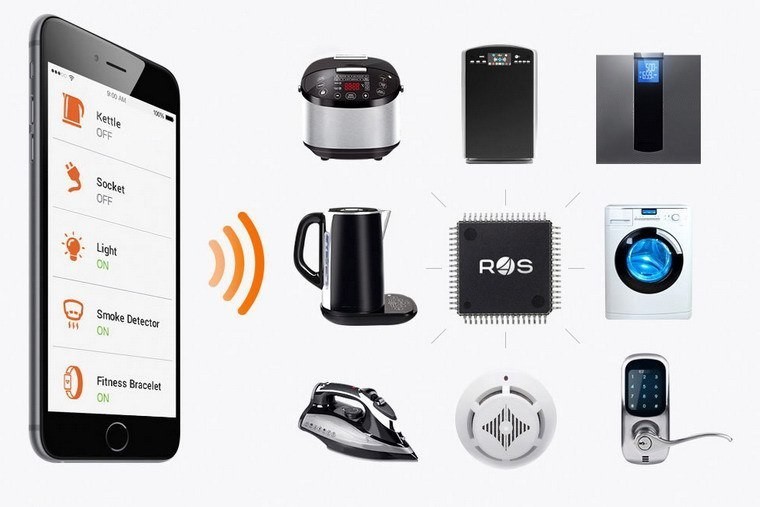On hot summer days, air conditioners become indispensable saviors that provide comfortable, cool air in homes and offices. But there are also unpleasant problems that are associated with the operation of this technique. Often people complain that the tubes of the air conditioner of the outdoor unit are frosted over. They are literally covered in ice. You need to figure out what causes this problem and how to prevent it.
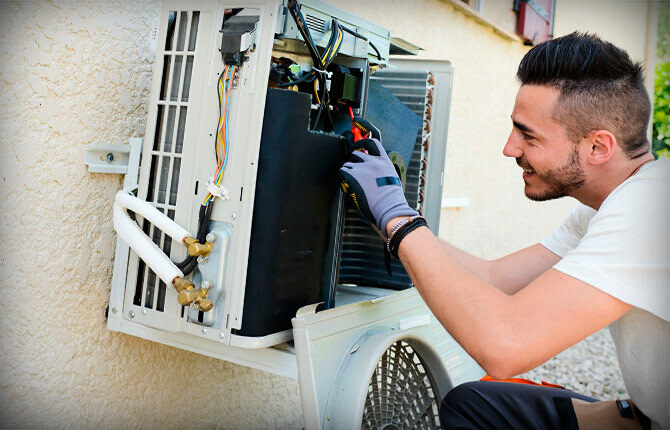
The content of the article:
-
The main causes of freezing
- Long run air conditioner
- Gas valve problem
- Large height difference between air conditioner units
- Dirty filters
- Clogged capillary tube
- Water in the air conditioning system
- Block pollution
- Low temperature outside
- Lots of coolant
- Low refrigerant
- Broken air conditioner pipes
The main causes of freezing
Freezing of air conditioner tubes happens for a variety of reasons, from improper installation and inappropriate system sizes to poor maintenance of the unit. Incorrectly installed pipes allow air with high humidity to enter, causing condensation and ice formation.
Insufficient air circulation can also contribute to moisture accumulation and freezing. In detail, each of the reasons why air conditioner tubes freeze over will be studied below.
Reading: Air conditioning and split system - what's the difference?
Long run air conditioner
Thick and thin pipes of the air conditioner may freeze due to the long route between the indoor and outdoor units of the system. A mistake is made at the stage of installing the device. Too long a path creates problems with cold gas circulation, which leads to a decrease in pressure and temperature in the system. When the temperature drops, the moisture in the air condenses, forming ice deposits on the surfaces of the tubes, they freeze over.
The longer the track, the more likely it is to freeze. This is due to the increased distance that the cold gas must travel before returning back to the compressor. In the process of passing through a long route, the gas loses heat, the pressure becomes low, which leads to condensation, so the pipes begin to freeze over.
To avoid the problem, even when installing the air conditioner, several factors should be taken into account:
- The first point is the choice of the desired diameter of the tubes for the route. Too narrow an option can create additional resistance, which impairs the circulation of the refrigerant. But too wide tubes lead to heat loss over a longer route. Correct calculation of their diameters, taking into account the features of a particular installation will help reduce the risk of freezing.
- It is important to correctly isolate a long route. The insulation helps keep the coolant warm, preventing it from cooling too quickly as it travels down the track. It also reduces the risk of condensation, so the surface of the pipes will not freeze.
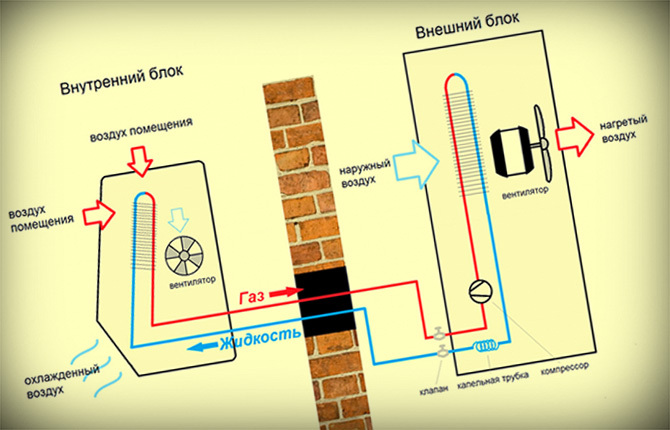
The choice of high-quality thermal insulation material, proper installation along the route play an important role in maintaining the efficient operation of the air conditioner, so the pipes do not freeze over.
Gas valve problem
Sometimes the pipes of the air conditioner freeze up due to a problem with the gas valve. It is a key component of the air conditioning system that regulates the flow of refrigerant. The gas valve may start to malfunction. This leads to improper distribution of the refrigerant and uneven cooling of the pipes.
One of the main causes of problems with a gas valve is its clogging or improper operation. Dust, dirt or other impurities accumulate in the split system. This prevents the normal movement of the refrigerant, leads to its incorrect distribution through the tubes.
Another problem with the gas valve arises due to its malfunction. Valve breakage, gas leakage may occur. This can lead to insufficient refrigerant flow into the system. It starts to overcool, and the pipes freeze up.
To solve the problem with the gas valve, it is recommended to carry out regular maintenance of the air conditioning system. It is necessary to periodically check and clean the air conditioner.
It is better to contact professional services if the pipes freeze over. In the event of a malfunction, it may be necessary to repair or replace the gas valve.
Large height difference between air conditioner units
If the height between the units varies significantly, this creates problems with the circulation of the refrigerant. As a result, thin or thick pipes also begin to freeze.
If the vertical distance between the units is too large, it may result in insufficient refrigerant supply from the outdoor unit to the indoor unit. As a result, it begins to accumulate in the upper part of the system, and its deficiency forms below. This leads to uneven cooling and subcooling of the refrigerant in the pipes, which contributes to the formation of frost.
Expert advice:
- It is important to correctly calculate the length, diameter of the tubes, taking into account the features of the installation, the height difference between the blocks. It is necessary to make sure that the route is set with an optimal slope to ensure the normal movement of the refrigerant in the system.
- One effective solution is to use a lift pump, which helps overcome height differences between units. It allows active transfer of refrigerant from a low-lying unit to a high-lying unit, ensuring its uniform distribution.
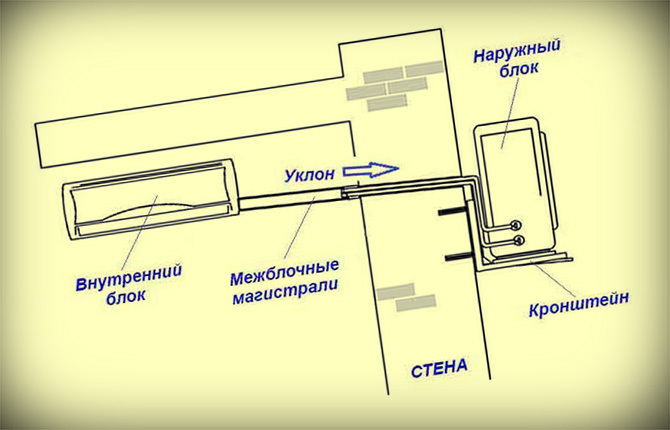
Proper calculation, installation of the route, the use of a lift pump will prevent the pipes from freezing, which will ensure the efficient operation of the air conditioner, even if there is a large height difference between the blocks.
Dirty filters
If the fluid filters in the system are dirty, the pipes may begin to freeze. They clean the air conditioner from dust, dirt and other impurities from the incoming air, and prevent their penetration into the air conditioning system. If the filters are not cleaned regularly or replaced in a timely manner, they can cause frost problems.
If this element is dirty, it limits the flow of fresh air into the system, impairing its circulation inside the room. This leads to a decrease in the evaporation temperature of the refrigerant, and it is supercooled, and the pipes freeze up.
Regular maintenance of the device is recommended to prevent the problem. Periodically it is necessary to check and clean the capillary tube. Cleaning is done with chemical solutions or with an air compressor.
Cleaning the filters also helps to reduce the load on the air conditioner, improves air quality and contributes to more efficient operation of the unit as a whole.
Clogged capillary tube
Another common cause of freezing is a clogged capillary tube. This is a narrow piping, usually made of copper or aluminum, which plays an important role in controlling the refrigerant flow in the evaporator. If the capillary tube is clogged or blocked, it may interfere with the normal flow of the refrigerant, causing ice to form.
The clogging of this element of the air conditioner is caused by various factors, including the accumulation of dust, dirt, oil or other impurities.
Regular maintenance of the device is recommended to prevent the problem. Periodically it is necessary to check and clean the capillary tube. Cleaning can be done with special chemical solutions or with an air compressor.
It is important not to forget to clean the filters. This will help prevent impurities from entering the capillary tube, maintain normal refrigerant flow.
In addition to regular maintenance, it is important to monitor the air quality in your home. Dust, smoke, moisture and other contaminants can impair the operation of equipment, which can cause pipes to freeze. Therefore, regular cleaning of the room, maintaining optimal humidity, ensuring good ventilation will help reduce the risk of clogging.
Water in the air conditioning system
If there is water in the system, the pipes may freeze up. Typically, air conditioners remove excess moisture from indoor air. But, if water accumulates or lingers in the system, this can lead to problems. Often in such a situation, the pipes begin to freeze over.
There are various reasons for this problem:
- If the drainage system is not functioning properly or is clogged, it may cause water retention in the evaporator or other parts. When the air conditioner is running, this retained fluid may freeze, especially in the coldest areas.
- Leaks in the device may allow moisture to enter the tubing or other parts without being noticed. The presence of moisture causes ice to form. Leaks happen if the seal is damaged, cracks appear, etc.
To prevent pipes from freezing due to the presence of water in the air conditioner, it is recommended to regularly check, maintain drainage system, monitor possible leaks and contact the craftsmen to eliminate them in a timely manner.
High humidity levels in the room can cause condensation to form. Regular ventilation, use of dehumidifiers can help reduce these figures, reduce the load on the air conditioning system.
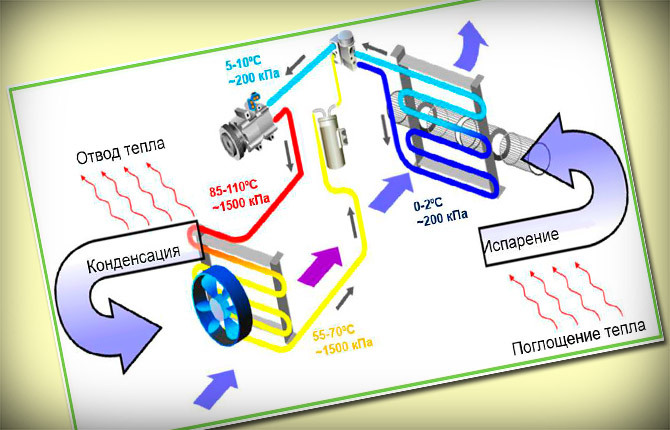
Problems with excess water in the air conditioner appear for various reasons, and their diagnosis and elimination require experience and knowledge. Therefore, it is recommended to contact the masters for a comprehensive inspection, repair.
Block pollution
The air conditioner pipes may be frosted up due to blockage contamination. This is an evaporator and a condenser. These elements play an important role in the circulation and processing of the refrigerant. If these units are contaminated with dust or build up on them, it may cause a malfunction heat exchange, insufficient cooling of the refrigerant, which, in turn, causes the formation of ice on pipes.
Block pollution can occur for various reasons. If air filters are not regularly cleaned or changed, they accumulate dust and dirt.
It is recommended to check and clean the blocks regularly to keep them free of dirt and pipes frosted over. To do this, use a soft brush, vacuum cleaner or air compressor. It is necessary to monitor the condition of the air filters, change or clean them regularly.
It is important to carry out professional maintenance of the air conditioning system. Certified technicians can carry out a deeper and more thorough cleaning of the A/C units using specialized tools and cleaners. Therefore, the pipes will not freeze over.
Low temperature outside
Often, due to the low temperature outside, the suction pipes begin to freeze up. Frost leads to the fact that the moisture in the air condenses on the surface of the pipes, freezes, forming a layer of ice. This is due to the fact that the heat released by the refrigerant in the process of cooling the air is transferred to the environment with a low temperature. As a result, the pipes are cooled and frozen over.
To prevent such a problem, you need to monitor the weather conditions. If a decrease in temperature is expected, it is better to temporarily turn off the air conditioner or use frost prevention devices. They have additional heating elements or special sensors that regulate the operation of the device in low temperature conditions, providing heating.
In severe frosts, the efficiency of the air conditioner may decrease. This leads to increased power consumption, possible damage. Reading the instruction manual is recommended. Often, manufacturers advise turning off equipment when the temperature drops to certain levels.
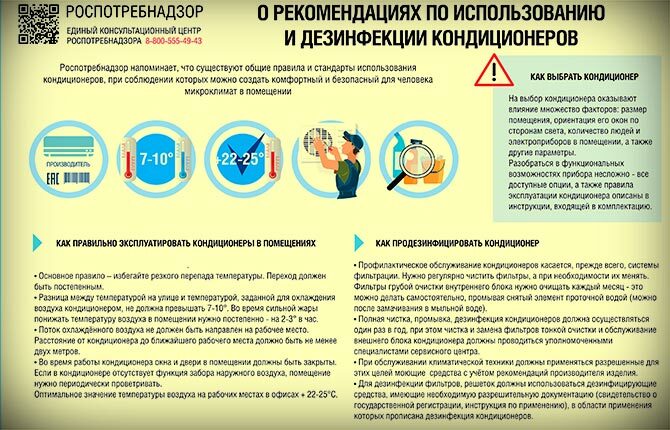
It is also worth making sure that all seals and insulation in the system are in good condition to prevent cold air from entering the unit, minimizing the risk of freezing.
Lots of coolant
Excessive refrigerant may be one of the reasons thick or thin pipes freeze up. This substance circulates in the system, is responsible for heat transfer and air cooling. The wrong amount of refrigerant can interfere with the normal operation of the air conditioner, causing pipes to freeze.
In the presence of an excess of this substance, excessive cooling occurs, which leads to a decrease in the temperature of the tubes. When it falls below the dew point (the temperature at which moisture in the air condenses), the moisture begins to freeze on the surface of the gas pipes, forming a layer of ice.
The reasons for this problem are described in the table.
| Cause | essence |
| Incorrect filling of the device with refrigerant | If there is more refrigerant in the system than required, this can lead to excessive cooling and ice formation. |
| A leak | If the system has a leak, some of the refrigerant may come out of it, which leads to a decrease in pressure, a change in the balance of the substance in the air conditioner. When repairing or refueling, it is important to check for leaks. |
To correct the problem, which is associated with an excess amount of refrigerant, it is necessary to contact a service center or an air conditioning specialist. They will check, determine the presence of leaks, correctly fill the system, taking into account the recommended norms.
It's best not to ignore the problem. Ice deposits can block the tubes, restricting the circulation of refrigerant, causing the compressor to overheat, which can lead to compressor failure.
Not recommended add refrigerant to the system yourself, as this requires special knowledge and equipment. It is better to go to specialists.
Low refrigerant
With a small amount of refrigerant, the pipes can also freeze up. The problem can arise for various reasons. For example, when installing or servicing a device, a leak may occur. As a result, part of the refrigerant leaves the system. This can happen if there are bad seals, cracks. Lack of refrigerant is often associated with improper charging.
If the level of this substance is low, the cold in the system is unevenly distributed. Some sections of the pipes may cool too much and begin to freeze. Freezing leads to deterioration in the operation of equipment, restriction of air flow, damage to the compressor.
Check the system regularly for leaks and maintain the optimum refrigerant charge level.
Filling the air conditioner with this substance is a complicated procedure. For its implementation requires special equipment, knowledge. Therefore, it is worth entrusting this work to the masters.
Signs of insufficient refrigerant may include poor room cooling, increased noise, or frequent compressor cycling.
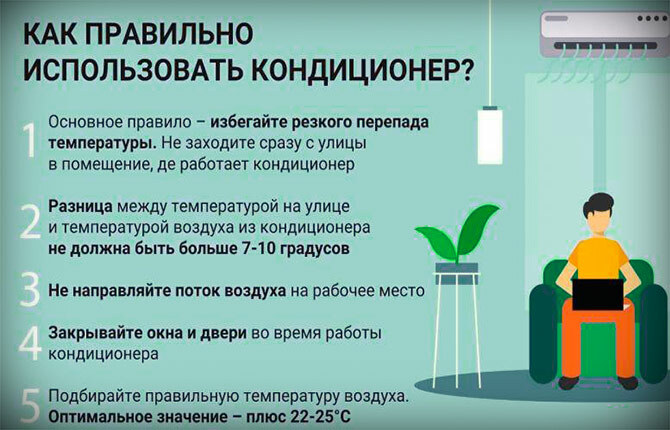
Broken air conditioner pipes
The hall of the air conditioner tubes is one of the reasons for the freezing of the system. They circulate refrigerant. They must be installed so as to ensure a smooth and continuous flow of this substance. But sometimes during installation, transportation or maintenance, the tubes can be incorrectly laid or skewed, resulting in creases.
As a result, narrow areas are created. This leads to a decrease in the volume of circulating refrigerant and a violation of the uniform distribution of cold in the system. As a result, ice plugs form, pipes begin to freeze.
Freezing due to creases has a number of negative consequences. This reduces the efficiency of the air conditioning system. The resulting ice plugs lead to an increase in pressure, which can damage the elements of the equipment.
To prevent the pipes from freezing due to creases, it is important to ensure that the structure is properly installed and laid. Avoid mechanical damage and handle the device with care.
If you find tube creases, it is recommended to contact the masters to fix them. They will be able to inspect, determine the location of the creases and take measures to correct them.
If the problem is too severe, damaged tubes may need to be replaced.
Sometimes it’s hard to figure out why the air conditioner freezes over. There are many reasons for this problem, so contact the masters. To prevent freezing of pipes and ensure efficient operation of the equipment, regular system maintenance, checking the level and condition of the refrigerant, cleaning and replacing filters is recommended. Early detection of the problem will avoid serious damage, extend the life of the equipment.
We also read: Air conditioning or split system - which is better?
If you have a personal experience when the pipes of the air conditioner are frosted over, share it in the comments. How did you solve the problem? Bookmark this article for future reference and share it with your friends.

